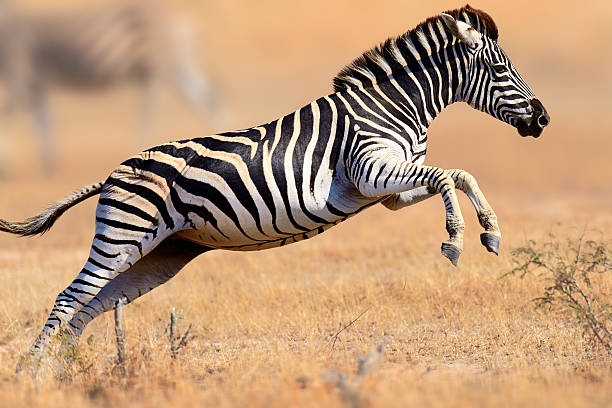Zebras are hostile, unpredictable, and quick-witted because of their native environment. They defend themselves to stay wild and free because they see us as predators.
When you think of a zebra, you probably imagine an animal with black and white stripes that looks like it belongs between a horse and a donkey. Some people would see a miserable young zebra trapped in the merciless African plains, surrounded by predators, while others might picture “Marty” from Madagascar!
They appear to be charming, helpless animals, yet they can bite and kick in a last-ditch effort to defend themselves. Zebras are very miserable! Unless they are? Why do we not ride zebras like horses if they were the docile, kind creatures we perceive them to be? It would surely appear more elegant than a typical horse, right?
The analogy of Human Colonization
If historical accounts of human civilization are to be believed, Homo sapiens initially emerged in Africa before “colonizing” various regions of Eurasia. We were roaming, murdering, and enslaving other local wildlife as a “species” in such places. For instance, this happened when we domesticated horses native to North America. Horses initially had no idea how to react to people since they were a novel and unknown threat.
The first time a horse and a person met, something like this would have happened:
Horse: Hey, buddy, what is that thing? (to a person) It is not particularly hairy and is rather little. That is something I have never seen before. Wait and see what happens.
1st Man: Whoa! That animal there is quite attractive. Can we eat it?
Man 2: Oh! See how it functions. Already, we have enough to eat. Let us simply ride this to get about more quickly!
Following that discussion, it was concluded that these wild animals needed to be domesticated. Many evolutionary processes occurred as people and horses continued to colonize new areas. Horses, however, never acquired the fear or flight response to humans. It appeared as though they changed into more at ease and composed versions of themselves. Unfortunately, there are currently practicing any wild horses surviving since people are unable to keep the environment in balance. The wild horses you see rushing about in movies are technically not wild since they are “feral” horses, descended from tamed horses.
Why did humanity fail to domesticate zebras?
Zebras are native to the same African plains where humans first appeared, so they were familiar with our species. Horses were the sole commonly utilized mode of transportation in Africa until human colonization ultimately swept the continent. All networks of transportation and communication were built around horses. Horses are not indigenous to Africa. Therefore, humans started to consider alternatives. Zebras, which appear to be a cross between horses and donkeys, were the ideal option. Or so they believed.
As previously said, zebras were accustomed to us and our ways. They perceived us as predators, unlike North American wild horses who were not accustomed to human behavior. Zebras were aware that those cave dwellers hunted them, and they had to contend with lions, cheetahs, hyenas, and humans in addition to these other predators. They consequently acquired the instincts and reflexes necessary to withstand assaults from various predators. Animals acquire traits and personalities as they change through time; certain behavioral tendencies have even assimilated into the biochemistry of their brains. Zebras were aware of human inclinations and treated humans with suspicion, although horses did not share this trait.
Zebras do not meet the requirements for domestication since people choose animals with the following qualities:
- Temperament stability
- Captive breeding
- Absence of aggressiveness
It did not take long for observers to realize that zebras may abruptly turn vicious and savage, even harming members of their species. They hate being confined since they are migratory and do not maintain territories like lions.
They may seriously harm anyone close to them due to their aggressive personality and powerful physical makeup. The zebras have made it clear that not all animals can be domesticated.

